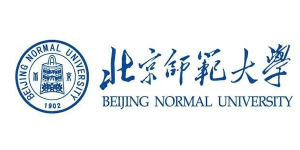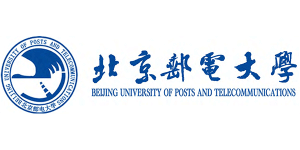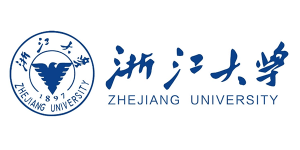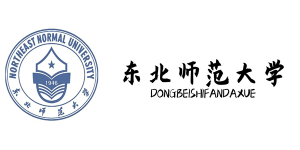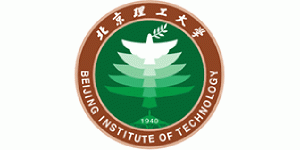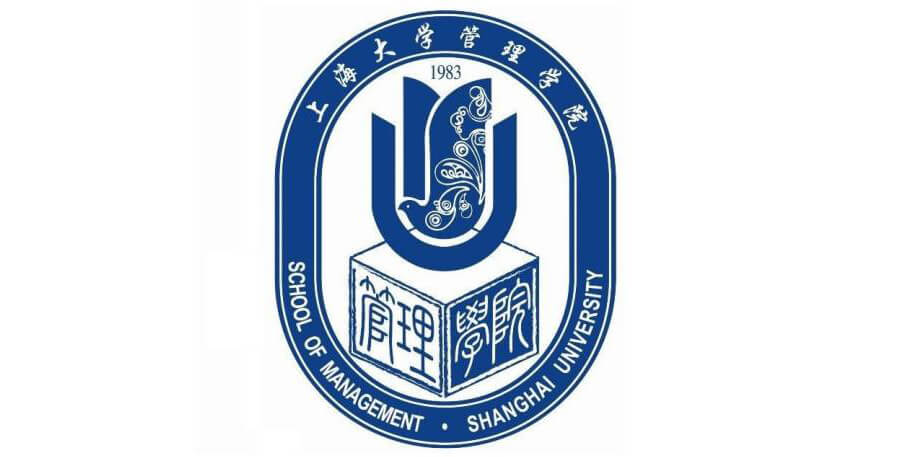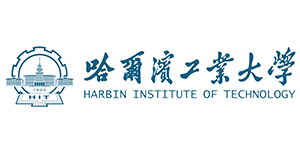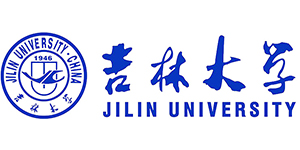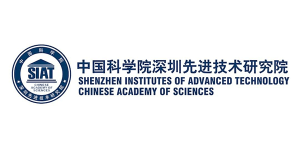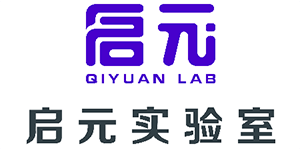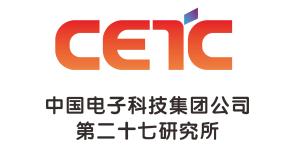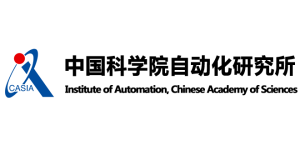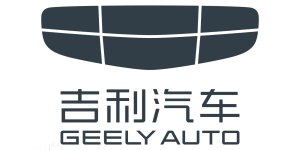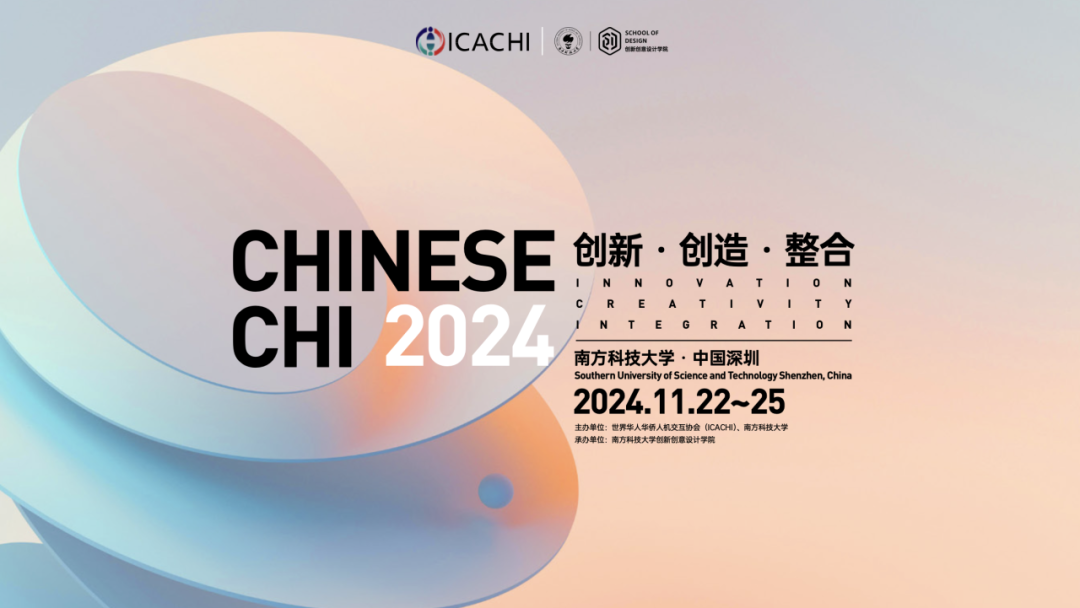


平行工作坊
Chinese CHI 2024
大会简介
世界华人华侨人机交互协会(International Chinese Association of Computer Human Interaction,简称“ICACHI”)举办的 Chinese CHI 2024 会议将于2024年11月22日至25日在中国深圳南方科技大学举办。本次会议主题为:创新(Innovation)、创造 (Creativity)、整合 (Integration)。
由世界华人华侨人机交互协会(ICACHI)举办的这一学术会议已成为连接世界范围内的华人HCI学者、学术界和产业界的重要会议。从2012年起,Chinese CHI已分别在巴黎、多伦多、首尔、硅谷、中国广州、加拿大蒙特利尔、中国厦门以及印度尼西亚巴厘岛成功举办。历届会议发表论文均会收录于ACM Digital Library,并提交EI检索。
在人工智能涌现的时代,本次会议将重点关注如何通过技术创新推动交互方式的变革,如何激发创造力,塑造更智能和人性化的交互系统,以及如何整合多学科研究成果应对复杂的实际应用场景。我们诚挚邀请全球顶尖学者、研究人员和业界领袖,分享他们的最新研究成果和实践经验,碰撞思想、交流经验,共同探索技术赋能人类未来的多元路径。
已会议注册的人员请扫描文章最后的二维码,注册工作坊;尚未注册会议的人员请先长按下方二维码注册会议。
会议注册




https://payment.sustech.edu.cn/publish/entryInfo.aspx?rd=6732612b6e3644743649373247756c306655713248413d3d
(Please scorll down for English)
工作坊一
跨平台交互创新的新工具
工作坊时间:11月22日 9:00 am -12:00 pm
工作坊地点:深圳南山智园C1栋1002室
工作坊语言:中文
设备要求:无
本次工作坊,将从实际案例出发引入交互设计语言的研究和应用背景,通过“IxDL卡牌桌游”这一新工具以及一系列的交互Demo,介绍交互设计语言的基本概念,拓宽参会者对于交互机制的认知并对交互设计的颗粒度有更深入的思考。随后通过分组试玩2-3轮“IxDL卡牌桌游”,体验不同的玩法和启发,巩固对交互设计中新概念、新范式的理解,提升在跨平台交互设计实践中的感知能力、创新能力和创新效率。
目标受众:
-
交互设计师、体验设计师、产品经理、前端程序员、人机交互研究者、学生
预期成果:
-
了解全新的交互设计视角和思维方式
-
通过“IxDL卡牌桌游”,学习交互机制创新的新方法和新工具
-
培养发现和创造跨平台交互方式的能力
-
提高设计团队内部、以及设计团队和开发团队之间的沟通效率
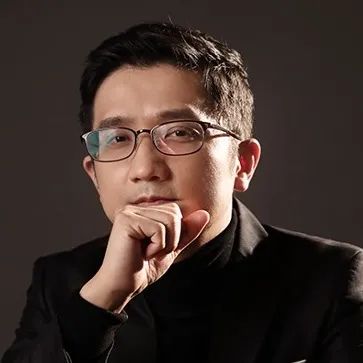



主讲人:罗涛
罗涛,南方科技大学创新创意设计学院助理教授,广东省“珠江人才计划”青年拔尖人才,南方科技大学教学优秀奖获得者。作为交互设计的实践者、研究者和教育者,他长期专注于交互性的底层逻辑、交互原型以及描述交互的形式化方法的研究。罗涛教授本科毕业于中山大学,获得数学与应用数学学士学位;随后在韩国国民大学取得交互设计硕士和博士学位。他曾任韩国国民大学助理教授和SK Telecom公司UX设计经理,负责智能手机、智能手表以及车载应用的交互设计工作。罗涛教授著有《交互设计语言:与万物对话的艺术》和《通用交互手势词典》,在小红书等社交网络上被众多科技厂商的交互设计师广泛转载,获得高度评价,其中部分内容被大厂设计规范收录。作为16项发明专利(中、美、韩)的主要发明人,他的创新成果集中于各类平台上(触屏设备、实体交互、空间计算等)的交互机制创新。自2019年以来,他与培养的学生在学校和企业中,基于交互设计语言及其工具,共申请了累计50余项发明专利。他组织开发了基于该语言的卡牌游戏、编辑工具和原型工具,使得该语言体系的学习和应用更高效。在南方科技大学设计学院开设本科课程“DS322用户体验与交互”,教授交互设计语言,每学期平均带领学生申请3项发明专利。他受邀在华为、网易、微软、联想、美的、Frog等知名企业进行分享和培训,进一步提升企业设计师在交互设计实践中的创新能力和效率。
工作坊二
生物HCI的可能性:探索生物HCI创新的未来场景
工作坊时间:11月22日 9:00 am -12:00 pm
工作坊地点:深圳南山智园C1栋1108室
工作坊语言:英文/中文
设备要求:笔记本电脑、手机
随着科学技术的发展,生物学与人机交互(HCI)的融合已成为一个新兴且有前景的研究方向,进而催生了生物人机交互(Bio-HCI)的新研究领域。Bio-HCI 利用创新的生物技术、生物传感器和生物材料,通过生物设计重新定义人类、生命体与计算机之间的关系,并探讨如何支持和增强这种交互体验。本工作坊旨在为参与者提供一个开放的讨论空间,以理解 Bio-HCI 的基本概念、发展趋势和前沿案例。同时,工作坊将引导参与者在设计练习中尝试这些概念,生成新的交互模型,并讨论 Bio-HCI 未来的应用场景和可能性,以促进 Bio-HCI 在不同领域的创新应用。
目标受众:
-
对 Bio-HCI 主题感兴趣的设计学生、交互设计师、艺术家和人机交互(HCI)研究人员
-
具有跨学科研究和创新兴趣的工程师及科学家
-
对 Bio-HCI 感兴趣的学生
预期成果:
-
理解人机交互(HCI)的新研究方向。
-
理解 Bio-HCI 的发展趋势、应用方法及工具/技术(传感器、物联网等)。
-
提升设计团队跨学科协作和沟通的能力。
-
激发参与者广泛思考 Bio-HCI 的未来创新及应用场景。
-
实验性设计 Bio-HCI 的设计概念。
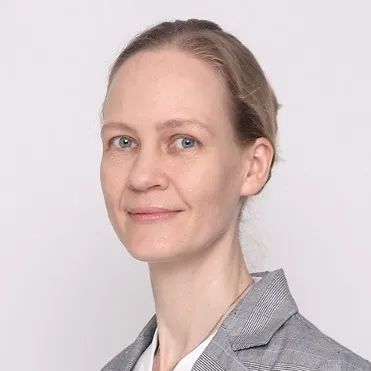



主讲人:何净值 Christiane Herr
何净值,现任南方科技大学创新创意设计学院教授和博士生导师,教学负责人和工业设计学士课程主任,拥有建筑学与工程学双博士学位。何教授是未来生态研究组的创建人,该实验室研究领域包括跨学科生态研究与设计、前沿立面技术和数字化支持设计。何教授在卡塞尔大学获得工程学硕士学位,在香港大学获得建筑学硕士及博士学位,并在卡塞尔大学获得第二个工程学博士学位。加入南方科技大学之前,何教授曾在西交利物浦大学和深圳大学担任副教授,并在国立成功大学担任访问助理教授。何教授曾担任亚洲计算机辅助建筑设计研究协会(CAADRIA)主席四年,现任未来计算机辅助建筑国际会议基金 (CAADFutures Foundation)委员会副主席,the Journal of Architectural Computing(IJAC)以及期刊Sustainable Horizons编委会成员。何教授已发表了超过100篇同行评审的学术出版物。近期合编《设计控制论:驾驭新事物》已发表于斯普林格设计研究基础系列丛书。
工作坊三
我们将如何老去: 培养对老龄化过程的跨代觉知
工作坊时间:11月22日 9:00 am -12:00 pm
工作坊地点:深圳南山智园C1栋1009室
工作坊语言:英文/中文
设备要求:无
此研讨会旨在探索年轻一代对老年人的态度,并通过一系列互动活动来培养共情。会议将以概述介绍开始,接着是旨在培养对老年人的身体和情感共情的体验活动。在这些见解的基础上,参与者将进行协作头脑风暴,以识别在跨代理解中的关键挑战。最后,参与者将分成小组,开发创新策略和可能的技术辅助解决方案,以有效应对这些挑战。
目标受众:
-
对老龄化相关话题感兴趣的设计学生和初级研究人员。
-
具有老年护理经验的年轻志愿者、社会工作者及相关护理服务从业者。
-
对老龄化社会有兴趣的年轻人。
预期成果:
-
参与者将通过我们的体验环节对老年人面临的身体和情感挑战有更深的理解。此外,通过使用提供的工具和方法,参与者将学习识别老年社区中的真实挑战,并开发出以共情为驱动、符合情境的,并可能由技术辅助的策略来解决这些问题。
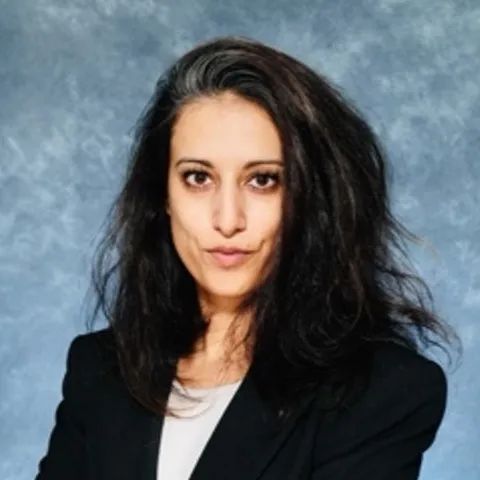



主讲人:Mirna Zordan
Mirna Zordan,现任南方科技大学创新创意设计学院助理教授,建筑师和设计研究者,研究兴趣包括城市心理学和复杂条件下的环境行为表现。她的研究回应了可持续发展目标中关于心理健康和社会/环境可持续发展的议程,特别关注通过增加专业实践者、学者和多学科专家之间的对话,实施设计响应,以应对未来城市密度。她在意大利威尼斯建筑大学获得学士和硕士学位,并获得了建筑执业许可证,后在香港博士奖学金计划(HKPFS)资助下,就读于香港城市大学并获博士学位。在悉尼担任建筑师后,她曾作为特邀讲师任教于多所国际性大学和机构,包括意大利威尼斯建筑大学、Atelier Europe China 威尼斯建筑大学/同济大学建筑与城市规划学院(Atelier Europe China IUAV/CAUP Tongji University)、FAB Fabrica De Ciudad(墨西哥城)、香港城市大学、香港大学和奥雅纳(ARUP)香港。她还曾在意大利威尼斯担任国家工业计划4.0项目的研究员,该项目由欧洲社会基金计划资助并与威尼斯建筑大学、RE-VEGA Group、威尼斯科技园、威内托大区和威尼斯东方大学合作。在加入南方科技大学之前,她任职于香港大学,同时也是国际城市化论坛(IFoU)YA团队的积极成员。更多信息请见:https://www.mirnazordan.com
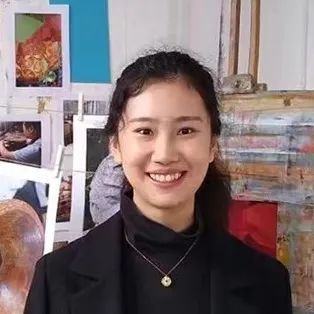



主讲人:张婉琳
张婉琳,现任南方科技大学创新创意设计学院助理教授,研究兴趣为文化数字化设计、可持续设计和数字人文。本科毕业于中南大学工业设计方向,随后在湖南大学取得设计学硕士学位,于英国兰卡斯特大学取得设计哲学博士学位。在加入南方科技大学之前,曾任英国艺术人文基金会资助项目研究员,并担任“文化交流”项目助理。在研项目主要聚焦文化数据采集、分析和转化中的技术探索和设计创新。研究成果发表在The Design Journal、International Journal of Anthropology and Ethnology、IEEE、Springer International Publishing等同行评审期刊书籍以及中文核心期刊中,多次参加国际设计领域高水平学术会议,同时担任多个文化及设计领域的国际期刊和高水平会议审稿人。曾参与多个实体项目和校企合作横向课题中,积累了用户研究、产品开发和项目管理经验。早期设计作品多次获得国家省市级奖项和专利授权。更多信息请见:https://resilientculturedesign.github.io/




主讲人:李雪亮
李雪亮,南方科技大学创新创意设计学院助理教授。他的研究涉及人机交互设计、人与社交机器人交互设计、情感驱动设计和幸福感设计。他将设计活动作为研究手段,通过产品原型设计开发和基于实验室或真实场景的用户体验调研,推进我们对科技在日常生活和产业实践当中创新应用可能性的认识,以及拓展设计与其他学科交叉研究领域的边界。在加入南方科技大学设计学院之前,他在荷兰代尔夫特理工大学工业设计工程系获得了博士学位。更多信息可查看: https://www.hci-xgroup.com/
工作坊四
探究生理传感信息作为具身线索在增强元宇宙共在式体验中的应用
工作坊时间:11月22日 9:00 am -12:00 pm
工作坊地点:深圳南山智园C1栋1107室
工作坊语言:英文/中文
设备要求:笔记本电脑/平板电脑
本研究旨在利用人们的心理生理信息作为元宇宙社交具身线索来增强大型共在式体验。为此,我们需要探索并揭示人们对各类生理数据及其相应表达方式的认知偏好。本工作坊将让每位参与者体验一段在VR 环境中的 DJ 表演,该表演结合了采集自真实基准用户的五个生理信号:肌电图(pEMG)、皮肤电反应(GSR)、心率(HR)、呼吸强度(RE)、血氧饱和度(SpO2)。在体验完这个技术原型后,用户将会参与到我们的线上调研里,该调研将重点收集用户对于生理数据表达颗粒度和具体表达形式等维度的反馈和偏好,用以支持我们的后续研究和设计决策。
目标受众:
-
欢迎对人机交互、VR 设备、元宇宙社交、生理信号表达和 VR 游戏感兴趣的与会者体验。
预期成果:
-
参与者将了解不同的生理数据及其各自对生理同步性和用户感知共存性的影响,并体验整合了生理数据的元宇宙共在式虚拟体验。同时,参与者的反馈将被应用于未来的研究和设计。
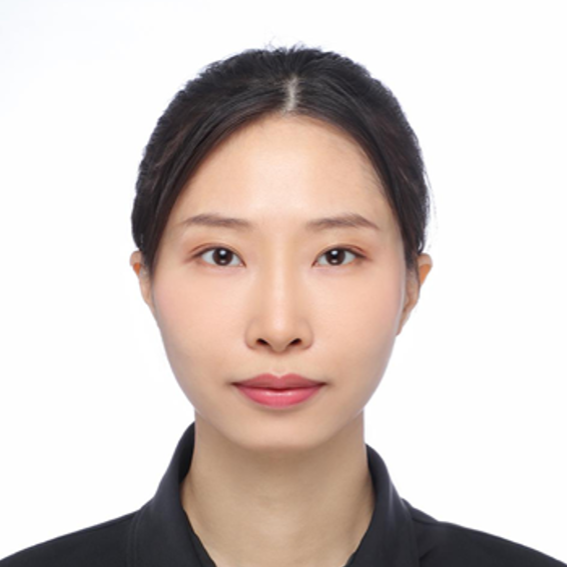



主讲人:萧若薇
个人研究方向主要聚焦于设计与人机交互的交叉领域,特别是基于物联网的具身交互,扩张现实与游戏化设计。曾在IJHCI及CHI Play等人机交互及游戏化领域的顶级期刊和会议上以第一作者发表多篇论文。本科毕业于上海交通大学,获得信息安全工程学士学位与动画二专学士学位。随后获得日本文部科学省奖学金,前往日本庆应义塾大学媒体设计学院留学,并先后取得媒体设计硕士及博士学位。在加入南方科技大学之前,她在芬兰坦佩雷大学游戏化研究组担任博士后研究员。在学术研究之外,她也是一名独立游戏开发者,同时拥有在游戏产业的实际工作经验,曾就职于日本知名游戏厂商光荣特库摩公司。
工作坊五
城市声境:城市声音日志的交互数据可视化
工作坊时间:11月22日 9:00 am -12:00 pm
工作坊地点:深圳南山智园C1栋1011室
工作坊语言:英文/中文
设备要求:手机电量充足
本工作坊旨在通过使用“城市声音日记”应用程序,带领参与者探索和操作城市声音数据。
声音研究小组的联合负责人为马塞尔·萨格塞尔,布朗大学博士(2021) ,南方科技大学创新创意设计学院助理教授。专注于声音与技术研究,主要研究领域包括物理声学物质、算法以及人类与技术之间的互动。
目标受众:
-
研究人员、城市规划师、媒体艺术家以及对城市研究、数据可视化、声音研究、移动技术和交互技术感兴趣的从业者。
预期成果:
-
了解“城市声音日记”应用程序及其功能
-
掌握音频分析的相关理论知识
-
通过互动数据可视化,以创造性的方式探索城市声景
-
深入了解并参与讨论数据在城市研究、声音研究、以人为本的技术、交互设计和社会计算中的意义
-
对应用程序的可用性和功能提出反馈,以便未来改进。
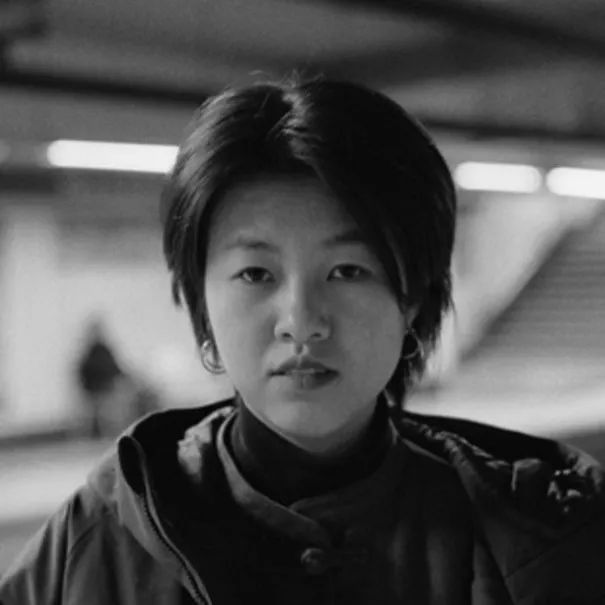



主讲人:付雪画
付雪画是一名专注于人本计算的计算机科学研究员,目前于南方科技大学创新创意设计学院担任科研助理。她于瑞典皇家理工学院获得计算机科学硕士学位,并于中山大学获得信息与计算科学学士学位。她当前的研究兴趣包括声音与音乐计算、多感官感知以及人机交互。付雪画于2024年7月加入声音研究小组,参与和主导研究项目“大音”,主要关注城市环境声音的大数据研究。在该项目中,她主导开发了利用数据可视化帮助理解城市声音的应用程序——“城市声音日记”。
工作坊六
未来考古:通过客家文化的实例体验、讨论和测试活档案
工作坊时间:11月22日 9:00 am -12:00 pm
工作坊地点:深圳南山智园C1栋1012室
工作坊语言:英文/中文
设备要求:鼓励参与者自带笔记本电脑
深圳是中国南方一座高密度、充满活力的城市,展现了城市区域的快速转型和发展特点。自20世纪80年代崛起以来,它并未形成集体记忆,而是反映了来自全国各地寻找机会的个人故事。
南方科技大学设计学院的物质性研究小组开展的研究项目“未来考古”将这座城市视为未来的考古遗址。这引发了对传统历史重建方法在我们快速变化、互联社会中的有效性的质疑。研究通过社区参与和共同设计,结合数字工具和人工智能,进行眞实与虚构的重建。
我们提出了一个名为“活档案”的推测性档案,以挑战和重新想象文化遗产的探索和可及性,最终为城市考古提供一种参与式的方法。我们通过接触有形的、眞实的材料和数字技术,质疑传统叙事,拒绝单一视角。我们利用开源API和网络技术开发一个虚拟领域,连接分散的收集材料和故事,涵盖再生数据。
专注于深圳坪山社区的客家文化,我们旨在通过技术整合揭示隐藏的叙事和物质方面。我们希望通过协作和推测策略,将历史与当代及未来的身份和行动相连接,提供关于交互设计、民族志研究、应用计算和人机交互的新见解。
作为“未来考古”这一广泛项目的一部分,我们设计了一个网络平台,旨在成为客家文化的活档案库。通过这个平台,公众可以在一个用眞实遗迹、收集来的故事、社区的想法以及文本、二维图像和三维物体生成的AI工具重建的虚构历史空间中,以个人化、非强加的叙事方式探索资料。档案的进一步实施包括整合公众的评论、反馈、知识和故事,成为“永不固定”的不断演变的文化遗产的一部分。
目标受众:
-
设计、媒体艺术、文化遗产、社会计算、人工智能和技术领域的研究人员、从业者和学生,以及对物质文化、城市研究、社区参与和叙事方法与实践感兴趣的任何人。
预期成果:
-
浏览并与虚拟空间进行互动
-
通过提出想法和反馈,为参与式档案的改进做出贡献
-
体验成为文化和物质转型的积极推动者的感觉
-
就技术、文化遗产和材料的未来进行创造性对话
-
学习客家文化
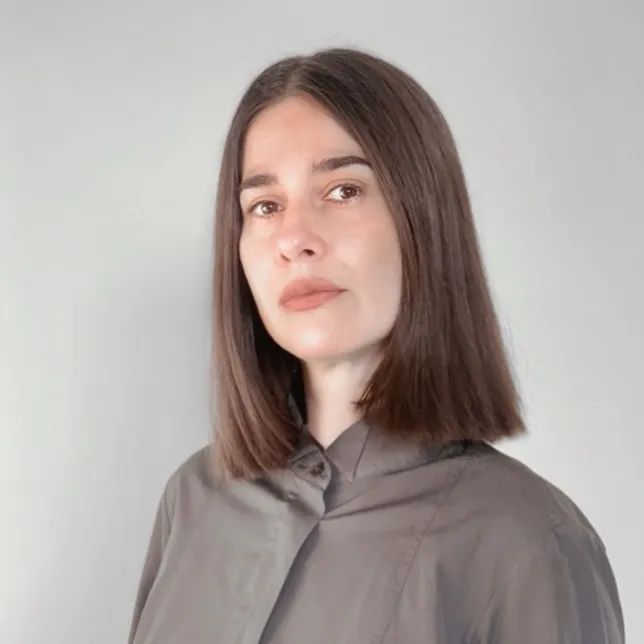



主讲人:恩扎·米廖蕾
Enza Migliore
Enza Migliore是南方科技大学设计学院的助理教授,材料研究实验室负责人,该实验室通过生态学、技术和文化的视角,利用跨学科和实证设计实践来研究材料。她拥有那不勒斯第二大学的设计与创新博士学位,并获得了日本科学促进会(JSPS)的博士后研究奖学金(2017-2019)。她的研究方向是材料与设计、生物创新和生态智能设计。在东京都立大学攻读博士后期间,她探索了关于材料未来的批判性观点。Enza参加国际展览是她传播活动的一部分。她是IPCB、聚合物、复合材料和生物材料研究所(意大利国家研究中心)、Foamlab(那不勒斯费德里科二世大学)和混合设计实验室的访问研究员,并担任Cumuls REVEDA工作组的联合主席。
工作坊七
创作之创作:基于GenFlow构建用于AIGC创作的多模态智能体
工作坊时间:11月22日 9:00 am -12:00 pm
工作坊地点:深圳南山智园C1栋1003室
工作坊语言:中文
设备要求:笔记本电脑
随着生成能力的不断演进和算法能力产品化,基于生成式AI的智能体已经成为创意活动中不可或缺的工具。这些智能体能够生成图像、视频、语音及文本等丰富的多模态内容,从而为创意活动提供广泛的灵感来源与实际成果。创作是一个复杂且多阶段的过程,每个阶段都涉及反复的思维发散与收敛,并通过多轮与智能体的互动迭代过程才能逐步接近创意目标。
我们提出一种面向复杂创作任务的多模态人-智能体交互框架GenFlow,一种多模态创意任务中的人-智能体系统协同创作框架。通过强调在创作的不同阶段提供多种模态的可解释和可控制界面,可以提升绘本、叙事漫画、动态海报、会议记录等复杂创作任务的创作体验和创作质量。在本次工作坊中,我们首先将向参与者介绍GenFlow框架,并通过案例分享和实操,共同探讨、完善和扩展人-智能体协同创作框架。
在实践操作中,工作坊参与者将参加到三项设计和研究活动中:(1)使用智能体创作平台,基于GenFlow框架引导构建包含图像、视频、语音及文本等多模态AI原子能力的创意智能体;(2)基于(1)中创作的智能体,生产高质量的创意作品;(3)交叉评估,讨论GenFlow框架在多模态人-智能体协同方面的可能性。
此次工作坊为设计、创意与交叉学科学者、从业人员与爱好者提供了有益参考与实践平台,以促进GenAI时代的设计思考与创新。
目标受众:
-
欢迎在智能设计、创意设计、AIGC、人工智能、大模型或其他相关领域具备初级经验的教师、学生,以及上述领域或独立创作者、创意媒体内容生产者等创意领域从业人员参加本次工作坊。
预期成果:
-
参与者了解GenFlow人-智能体协同创作框架的概念、原理及架构;
-
掌握创建符合用户创作需求与行为模式的智能体的方法和工具,并实操创建智能体实例;
-
收集并整合来自参与者关于GenFlow框架的讨论内容,为进一步优化框架功能、增强其在多模态人智协同中的实用性奠定基础,同时促进学术界与产业界对该主题的深入研究与讨论。




主讲人:
阿里云智能设计部 – 创新中心
已注册过本届大会的同仁,请长按以下二维码注册工作坊。
工作坊注册
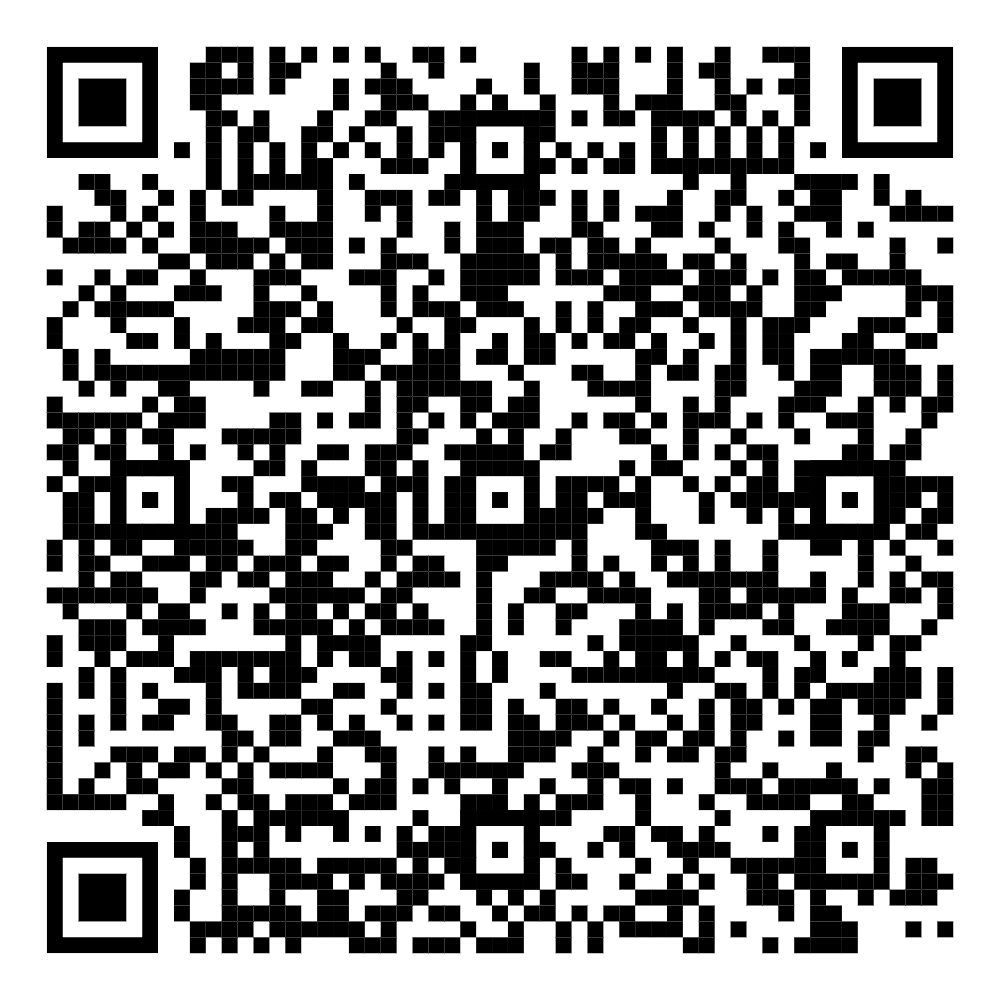



https://payment.sustech.edu.cn/publish/entryInfo.aspx?rd=2b6d4f733942337731584b764f424c4d47444b4368673d3d
产业报告
在智能人机交互中的多模态神经技术的创新应用
报告时间及地点一:
-
11月22日 8:30 am – 8:50 am
-
深圳南山智园C1栋1014室
报告时间及地点二:
-
11月23日 13:30 pm – 13:50 pm
-
南方科技大学主校园商学院楼108室
报告语言:中文
设备要求:无
报告内容包括:
-
多模态神经技术在智能人机交互中应用理念
-
多模态神经技术在智能人机交互中技术方法
-
多模态神经技术在智能人机交互中案例分享
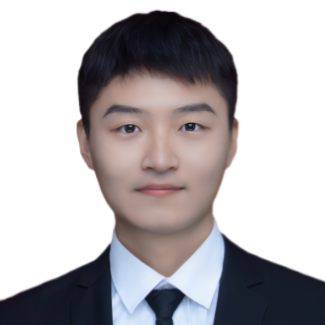



主讲人:王硕
北京恒挚科技有限公司大区总监、中科(广东)科学集团有限公司大区总监、武汉人因工程技术研究院部门负责人、广东人因技术研究院部门负责人。具有人因工程与认知神经科学专业技术,擅长利用视、听、嗅、味、触及声、光、电、磁等刺激方式,结合眼动仪、脑电、近红外、核磁等认知神经技术在心理人因、交通驾驶、工业设计、虚拟现实、部队军工等领域中应用。
Concurrent Workshops
Chinese CHI 2024
Conference Introduction
The International Chinese Association of Computer Human Interaction (ICACHI) is delighted to announce the upcoming Chinese CHI 2024 conference will occur in Southern University of Science and Technology, Shenzhen, China, from November 22th to 25th, 2024. The conference theme for this year is “Innovation. Creativity. Integration.”
Chinese CHI is the premier venue for connecting Chinese HCI researchers, practitioners, and industry leaders worldwide. Since its inception in 2012, Chinese CHI has successfully been held in Paris, Toronto, Seoul, Silicon Valley, Guangzhou, Montreal, Xiamen, and Bali. Accepted papers at the conference are published annually in ACM Digital Library and EI Compendex.
In the era of emerging technologies, Chinese CHI 2024 will focus on driving transformations in interaction paradigms through technological innovation, stimulating creativity to shape more intelligent and human-centered interactive systems, and integrating multidisciplinary research outcomes to address complex real-world application scenarios. We cordially invite leading scholars, researchers, and industry leaders from around the globe to share their latest findings and practical experiences, to foster intellectual exchange and collaborative dialogue, and to explore diverse pathways through which technology can empower the future of humanity.
For those who have registered for the conference, please scan the QR code at the end of the article to register for workshops; for those who have not yet registered for the conference,please scan the QR code below to register for the conference first.
Register for the Conference




https://payment.sustech.edu.cn/publish/entryInfo.aspx?rd=6732612b6e3644743649373247756c306655713248413d3d
Workshop 1
A New Tool for Cross-Platform Interaction Innovation
Date and Time: Oct. 22nd, 9:00 am -12:00 pm
Location: Room 1002, Building C1, iPark SUSTech School of Design
Language: Chinese
Equipment Requirement: N/A
This workshop will introduce the research and application background of interaction design language using real-life cases. Through the new tool “IxDL Card Game” and a series of interaction demos, it will cover the basic concepts of interaction design language, broaden participants’ understanding of interaction mechanisms, and encourage deeper thinking about the granularity of interaction design. Participants will then play 2-3 rounds of the “IxDL Card Game” in groups to experience different gameplay and insights, solidifying their understanding of new concepts and paradigms in interaction design, and enhancing their perception, innovation, and efficiency in cross-platform interaction design practices.
Target Audience:
-
Interaction designers, experience designers, product managers, front-end developers, human-computer interaction researchers, and students.
Participant Benefits:
-
Gain a new perspective and way of thinking in interaction design.
-
Learn new methods and tools for innovation in interaction mechanisms through the “IxDL Card Game.”
-
Develop the ability to discover and create cross-platform interaction methods.
-
Improve communication efficiency within design teams and between design and development teams.




Host: Luo Tao
Luo Tao is an assistant professor at the School of Innovation and Design, Southern University of Science and Technology. He is a recipient of the Guangdong “Zhujiang Talent Plan” for young talents and has received the university’s Teaching Excellence Award. As a practitioner, researcher, and educator in interaction design, he focuses on the fundamental logic, prototypes, and formal methods of describing interaction. Luo Tao graduated with a degree in Mathematics and Applied Mathematics from Sun Yat-sen University, and later obtained his master’s and doctoral degrees in Interaction Design from Kookmin University in Korea. He has served as an assistant professor at Kookmin University and as a UX Design Manager at SK Telecom, working on interaction design for smartphones, smartwatches, and in-car applications.
Luo Tao is the author of Interaction Design Language: The Art of Dialoguing with Everything and Universal Interaction Gesture Dictionary, which have been widely shared and praised on social networks like Xiaohongshu by interaction designers from many tech companies. Some of his work has been included in design standards of major firms. As the primary inventor of 16 invention patents across China, the U.S., and Korea, his innovations focus on interaction mechanism innovations across various platforms, including touch devices, physical interactions, and spatial computing. Since 2019, he and his students have applied for over 50 invention patents in both academic and corporate settings, based on interaction design languages and tools. He developed card games, editing tools, and prototyping tools based on this language, enhancing the efficiency of learning and application. At Southern University of Science and Technology, he teaches the undergraduate course “DS322 User Experience and Interaction”, leading students to apply for an average of three invention patents each semester. He has been invited to share and conduct training at renowned companies such as Huawei, NetEase, Microsoft, Lenovo, Midea, and Frog, further enhancing the innovation capabilities and efficiency of corporate designers in interaction design practices.
Workshop 2
Possibilities of Bio-HCI: Exploring Future Scenarios of Bio-HCI Innovation
Date and Time: Oct. 22nd, 9:00 am -12:00 pm
Location: Room 1108, Building C1, iPark SUSTech School of Design
Language: English/Chinese
Equipment Requirement: Laptop, Cellphone
With the development of science and technology, the integration of biology and human-computer interaction (HCI) has become an emerging and promising research direction, leading to the development of the new research direction of Bio-HCI. Bio-HCI uses innovative biotechnology, biosensors and biomaterials to redefine the relationship between humans, organisms, and computers through bio-design and examines ways in which such interaction experiences can be supported and enhanced. This workshop aims to provide participants with an open-ended discursive space to understand the basic concepts, trends, and cutting-edge cases of Bio-HCI. At the same time, the workshop will guide participants to experiment with these concepts in a design exercise to generate new interaction models and to discuss the future application scenarios and possibilities of Bio-HCI in order to promote the innovative application of Bio-HCI in different fields.
Target Audience:
-
Design students, interaction designers, artists and HCI researchers with an interest in Bio-HCI topics
-
Engineers and scientists with cross-disciplinary research and innovation interests
-
Students with an interest in the Bio-HCI
Participant Benefits:
-
Understand new research directions of human-computer interaction.
-
Understand the development trends, application methods and tools/technologies of Bio-HCI (sensors, IoT etc).
-
Enhance the design team’s ability to collaborate and communicate across disciplines.
-
Inspire participants to think extensively about the future innovation and application scenarios of Bio-HCI.
-
Experimental design Bio-HCI design concepts.




Host: Christiane Herr
Christiane M. Herr is Professor and PhD supervisor as well as responsible person for education and Director of the BEng Industrial Design program at the School of Design, Southern University of Science and Technology. With a background in architecture and engineering, Christiane leads the Future Ecologies Research Group with a focus on the areas of cross-disciplinary ecological design, advanced façade technologies and digitally supported design. Christiane obtained a Dipl.-Ing. degree from the University of Kassel, an MArch and Ph.D. degrees from The University of Hong Kong and a second Dr.-Ing. degree from the University of Kassel. Before joining SUSTech, she held positions as Associate Professor at Xi’an Jiaotong-Liverpool University and Shenzhen University and as Visiting Assistant Professor at National Cheng Kung University. Christiane was President of the Association for Computer-Aided Architectural Design Research in Asia (CAADRIA) for four years and is currently vice-chair of the Board of the CAADFutures Foundation. She is a member of the editorial boards of the Journal of Architectural Computing (IJAC), the journal Architectural Intelligence and the journal Sustainable Horizons. Herr has authored over 100 peer reviewed academic publications and has recently co-edited the book “Design Cybernetics: Navigating the New”, published in the Springer Design Research Foundations Series.
Workshop 3
Aging with Empathy: Fostering Cross-Generational Insights into the Aging Experience
Date and Time: Oct. 22nd, 9:00 am -12:00 pm
Location: Room 1009, Building C1, iPark SUSTech School of Design
Language: English/Chinese
Equipment Requirement: N/A
This workshop is designed to explore younger generations’ attitudes toward the elderly and to
foster empathy through a series of interactive activities. The session will begin with an
introduction overview, followed by experiential activities aimed at cultivating both physical and
emotional empathy for the elderly. Building on these insights, participants will engage in a
collaborative brainstorming session to identify key challenges in bridging generational
understanding. Finally, participants will break into smaller groups to develop innovative
strategies and potential technology-assisted solutions for addressing these challenges
effectively.
Target Audience:
-
Design students and junior researchers with an interest in aging-related topics.
-
Young volunteers and social workers with experience in elderly care, as well as
-
practitioners in eldercare services.
-
Young people with an interest in the aging society.
Participant Benefits:
-
Participants will gain a deeper understanding of the physical and emotional challenges faced by the elderly through our experiential sessions. Also, by using the tools and methods provided, participants will learn to identify real challenges within the elder community and develop empathy-driven, context-appropriate, and potentially technology-assisted strategies to address these issues.




Host: Mirna Zordan
Mirna Zordan is an architect and a design instructor with a specific focus on data-driven spatial psychology and environment-behaviour performances in complex conditions. Her research replies to the SDGs agenda for good health and well-being and her current projects are centered on 1) psycho-physiological responses to high-density space complexities with a specific focus on stress levels, and 2) human-environment interactions for the aging society. She also has an active interest in exploring design responses for urban villages (Villages in the City) through increased dialogues among local communities and authorities, professional practices, scholars, and multidisciplinary experts. Professor ZORDAN received her BA and MA at IUAV The University of Venice together with her license for practicing Architecture. She holds a PhD from City University of Hong Kong awarded with the Hong Kong PhD Fellowship Scheme (HKPFS). After working as an architect in Sydney, she taught and was an invited lecturer in several international institutions including IUAV The University of Venice, Atelier Europe China IUAV/CAUP Tongji University, FAB Fabrica De Ciudad (Mexico City), City University of Hong Kong, The University of Hong Kong, and ARUP Hong Kong. She was also a research fellow in Venice funded by the European Social Funding Scheme replying to the National Industry Plan 4.0, Italy, with IUAV, RE-VEGA Group, The Science and Technology Park of Venice, Regione Veneto, and Universita’ Ca’ Foscari Venezia. Before joining SUSTech, she was working at The University of Hong Kong while being an active ambassador at the International Forum on Urbanism (IFoU). For more information, please see: https://www.mirnazordan.com




Host: Wanlin Zhang
Wanlin Zhang, assistant Professor at the School of Design, Southern University of Science and Technology. She is a cross-disciplinary design researcher whose work focuses on culturally significant design, design for sustainability, and digital humanities. She holds a PhD in Design from Lancaster University, UK, and MA degree in Design Science from Hunan University, China, and BA in Industrial Design from Central South University, China. Her previous research contributes to Located Making project, which is a collaborative three-year project funded by the UK Arts and Humanities Research Council (AHRC) Newton Fund. Also, she previously worked as Assistant to the Cultural Exchange project at Lancaster University. Her ongoing projects investigate how computing technologies and data-driven design approaches can facilitate innovation within cultural and creative fields. She has published almost 20 peer-reviewed articles, book chapters and conference papers, and these include The Design Journal, International Journal of Anthropology and Ethnology, IEEE, EAD conference, IASDR conference, and CUMULUS conference. She also serves as a reviewer for several leading international journals and conferences in culture and design fields. In addition, as a designer and design researcher, she was involved in several design projects and funded research projects, and she has research and commercial experience in user experience research, product development and project management. Her previous design works were awarded at the national, provincial, and municipal levels and were granted patents. More information can be found at https://resilientculturedesign.github.io/




Host: Xueliang Li
Xueliang Li, assistant professor at the School of Design, Southern University of Science and Technology. His research interest lies in Human-computer Interaction (HCI), Human-robot Interaction (HRI), emotion-driven design, and design for mental wellbeing. His research takes on a Research-through-Design perspective, seeing design activities as a way of advancing our understanding of innovative applications of technologies in our everyday life and design practice. Through engaging in design practice and research, he aims to extend the boundaries of the intersections of design and other disciplines. Before joining the School of Design, he obtained his PhD from the Faculty of Industrial Design Engineering at Delft University of Technology in the Netherlands. For more information, please visit: https://www.hci-xgroup.com/
Workshop 4
Exploring Biosensory Information as Embodied Social Cues for Enhancing Metaverse Copresent Experience
Date and Time: Oct. 22nd, 9:00 am -12:00 pm
Location: Room 1107, Building C1, iPark SUSTech School of Design
Language: English/Chinese
Equipment Requirement: Laptop/Pad
This study aims at leveraging people’s psychophysiological informationas metaverse social embodied cues to enhance large-scale co-occurringexperiences. To this end, we intend to explore and reveal people’scognitive preferences for various types of biosensory signals and theircorresponding expressions. We will guide each participant to experience aDJ performance in a VR environment that incorporates five biosensorysignals: power of electromyography (pEMG), galvanic skin response(GSR), heart rate (HR), respiration effort (RE), oxyhemoglobinsaturation by pulse oximetry (SpO2), captured from a real baseline user. After experiencing this technical demo, we will inviteusers to participate in an online survey so as to gain first-hand feedbackand elicit user preferences on biosensory information as embodied cues.These feedback will support our subsequent research and future designdecisions.
Target Participants:
-
People interested in human-computer interaction, VR devices, metaversesocialization, physiological signal expression, and VR gaming
Participant Benefits:
-
Participants will be introduced to different biosensory cues and theirrespective impacts on physiological synchrony and user-perceivedcopresence. They can go through a metaverse co-presence virtualexperience that incorporates biosensory information. Participants’feedback will contribute to our future research and design.




Host: Ruowei Xiao
Ruowei Xiao is Assistant Professor at the School of Design, Southern University of Science and Technology. Her research has been focused on the interdisciplinary domain of design and human computer interaction (HCI), specifically, IoT-based embodied interaction, extended reality and gamification. She has a growing record of first-authored papers published in top HCI and gamification journals and conferences, such as IJHCI and CHI Play.
Previously, she obtained a B.E of Information Security Engineering and a B.A of Animation Production from Shanghai Jiao Tong University. After that, she acquired a MEXT scholarship from the Japanese government and continued her graduate study at Keio University, Japan, where she obtained her M.S and Ph.D of Media Design. Prior to joining SUSTech, she worked as a post-doctoral researcher at the Gamification Group of Tampere University, Finland. In addition, she is also an Indie Game developer and has worked for one of the major Japanese game manufacturers, KOEI TECMO Games.
Workshop 5
Exploring Urban Soundscapes: Interactive Data Visualization with ‘Urban Sound Diary’
Date and Time: Oct. 22nd, 9:00 am -12:00 pm
Location: Room 1011, Building C1, iPark SUSTech School of Design
Language: English/Chinese
Equipment Requirement: A charged personal smartphone with a stable mobile internet connection
This workshop seeks to engage participants in exploring and manipulating urbansound data utilizing the Urban Sound Diary application.
The project PI is Marcel Sagesser. Marcel Sagesser (PhD ‘21 Brown University) is an assistant professor at the SUSTechSchool of Design and is a sound and technology researcher, focusing on physical sonicmatter, algorithms, and interactions between humans and technology. He is the co-directorof the Sound Studies Group.
Target Audience:
-
Researchers, urban planners, media artists, and practitioners interested in urbanstudies, data visualization, sound studies, mobile technologies, and interactivetechnologies.
Participant Benefits:
-
Be introduced to the ‘Urban Sound Diary’ application and itsfunctionalities.
-
Acquire the relevant theoretical knowledge of audio analysis.
-
Be encouraged to explore the urban soundscape through interactive datavisualization in a creative manner.
-
Gain insight into, and engage in discussionsregarding the implications of the data in urban studies, sound studies, human-centered technology, interaction design, and social computing.
-
Provide feedbackon the application’s usability and features for future enhancements.




Host: Xuehua Fu
Xuehua is a computer science researcher specialized in human-centered computing. She holds a MSc degree in Computer Science from KTH Royal Institute of Technology, Sweden, and a BSc degree in Information and Computing Science from Sun Yat-Sen University. Her current research interests include sound and music computing, multisensory perception, and human-computer interaction. Xuehua joined the Sound Studies Group in July 2024. She has been leading the development of the research project “The Big Voice” about data-driven studies of urban sounds in Shenzhen, in which the app ‘Urban Sound Diary’ was created.
Workshop 6
Future Archeology: Experiencing, Discussing, and Testing the Living Archive on the Example of Hakka Culture
Date and Time: Oct. 22nd, 9:00 am -12:00 pm
Location: Room 1012, Building C1, iPark SUSTech School of Design
Language: English/Chinese
Equipment Requirement: Participants are encouraged to bring their own pc for a smooth and effective working session
Shenzhen, a high-density, dynamic city in southern China, showcases the swift transformation and developing character of urban areas. Since its emergence in the 1980s, it has not formed a collective memorybut rather reflects individual narratives from people across the country in search of opportunities.
The research project “Future Archaeology,” conducted by the Materialities Research Group at SUSTechSchool of Design, assumes the city is a future archaeological site. This raises questions about the effectiveness of conventional historical reconstruction methods in our rapidly changing, interconnected society. The research encompasses realistic and fictional reconstructions through digital tools and artificialintelligence based on community involvement and co-design.
We suggest a speculative archive, which we call “Living Archive,” to challenge and reimagine the investigation and accessibility of cultural heritage, ultimately contributing to a participatory approach to urbanarchaeology. We challenge conventional narratives and reject a singular viewpoint by engaging withtangible, authentic materials and digital technologies. We utilize open-source APIs and web technologies to develop a virtual realm that interlinks fragmented, collected materials and stories, encapsulatingregenerative data.
Focusing on the Hakka culture in Shenzhen’s Pingshan community, we aim to uncover hidden narrativesand material aspects through technological integration. We aim to offer new insights into interaction design, ethnographic studies, applied computing, and HCI, employing collaborative and speculative strategies to connect history with contemporary and future identities and actions.
As part of the broad project “Future Archeology,” we designed a web platform to become a Living Archive of Hakka culture where the public can explore material through a personal, non-imposed narrativenavigating a fictional historic space rebuilt with authentic remains, collected stories, and ideas from thecommunity, and AI tools of text, 2D images, and 3D objects generation. The further implementation ofthe archive includes integrating comments, feedback, knowledge and stories from the public to becomepart of the “never fixed,” evolving cultural heritage.
Target Audience:
-
Researchers, practitioners, and students in design, media art, cultural heritage, social computing, AIand technology, and anyone interested in material culture, urban studies, community engagement, andnarrative methods and practice.
Participant Benefits:
-
Navigate and interact with the virtual space;
-
Contribute to the participative archive improvement with ideas and feedback;
Experience the feeling of being an active agent of a cultural and material transformation;
Engage in a creative conversation about the future of technology, cultural heritage, and materials; -
Learn about Hakka culture.




Host: Enza Migliore
Enza Migliore is an Assistant Professor at the School of Design at SUSTech University in Shenzhen. She leads the Materialities Research Group, which examines materials through the lenses of ecology, technology, and culture, utilizing interdisciplinary and empirical design practices. She holds a Ph.D. in Design and Innovation from the Second University of Naples and received a post-doctoral research fellowship (2017-2019) from JSPS (Japan Society for Promotion of Science). Her research is in Materials and Design, Bio-Innovation, and Eco-intelligent Design. During her post-doctoral studies at the Metropolitan University of Tokyo, she explored critical perspectives on the future of materials. Enza participates in international exhibitions as part of her dissemination activity. She is a visiting researcher at IPCB, Institute of Polymers, Composites, and Biomaterials (Italian National Research Centre), the Foamlab (Federico II University of Naples), and the Hybrid Design Lab, and serves as Co-Chair of The Cumuls REVEDA Working Group.
Workshop 7
Creation of Creations: Explainable and Controllable Interfaces in Human-Agent Co-Creation based GenFlow
Date and Time: Oct. 22nd, 9:00 am -12:00 pm
Location: Room 1003, Building C1, iPark SUSTech School of Design
Language: Chinese
Equipment Requirement: Laptop
With the development and commercialization of generative artificial intelligence (GenAI) technology, GenAI-based agents have been widely adopted in creative activities, offering diverse sources of inspiration results.Human-agent co-creation is a complex, multi-stage process in which each phase requires both divergent andconvergent thinking, gradually approaching the creative objectives through multiple rounds of interaction.However, a well-defined framework for user experience design in this process is currently lacking.
We proposed GenFlow, a mixed-initiative human-agent interaction framework designed for complex creativetasks. By emphasizing the provision of explainable and controllable interfaces for mixed-modal agents, thisframework enhances the creative experience and quality of complex tasks such as picture books, animatedposters, and meeting summaries. Built on the GenFlow, we designed an agent platform that integratesfoundational multimodal GenAI capabilities to support the creation and use of creative agents. By the designof controllable and interpretable user interfaces, the platform facilitates human-agent co-creation, enabling theproduction of higher-quality creative outcomes and improving overall system usability.
Target Audience:
-
Researchers, students, and practitioners in design, media arts, artificial intelligence, AIGC, or otherrelated fields, and anyone interested in creative design, co-creation methods and practices.
Participant Benefits:
-
In this workshop, we aim to introduce the GenFlow framework, inviting participants to engage in hands-on useof the intelligent agent platform to experience co-creation with agents, as well as to discuss possibleexpansions of the framework. Additionally, participants will explore the impact and potential of explainable andcontrollable interfaces in human-agent co-creation, sharing insights based on their hands-on experiences tocontribute to enhancing user experience and creative quality in human-agent co-creation.
-
This workshop provides a valuable reference and practical platform for communities in design, creativity, andAIGC, promoting design thinking and innovation in the era of GenAI.




Host:
Alibaba Cloud Design Creativity Center
For those who have registered for the conference, please scan the QR code to register for workshops.
Register for Workshops




https://payment.sustech.edu.cn/publish/entryInfo.aspx?rd=2b6d4f733942337731584b764f424c4d47444b4368673d3d
Industry Report
Innovative Applications of Multimodal Neural Technologies in Intelligent HCI
Day 1 Time and Location:
-
Oct. 22nd, 8:30 am – 8:50 am
-
Room 1014, Building C1, iPark SUSTech School of Design
Day 2 Time and Location:
-
Oct. 23rd, 13:30 pm – 13:50 pm
-
Room 108, Business School, SUSTech
Language: Chinese
Equipment Requirement: N/A
Topics include:
-
Application concept of multimodal neural technology in intelligent human-computer interaction
-
Technical methods of multimodal neural technology in intelligent human-computer interaction
-
Case studies of multimodal neural technology in intelligent human-computer interaction




Host: Shuo Wang
Regional Director, Beijing Everloyal Technology Co., Ltd.



点击 “阅读原文” 查看更多工作坊信息
Click for more information about workshops
公司简介
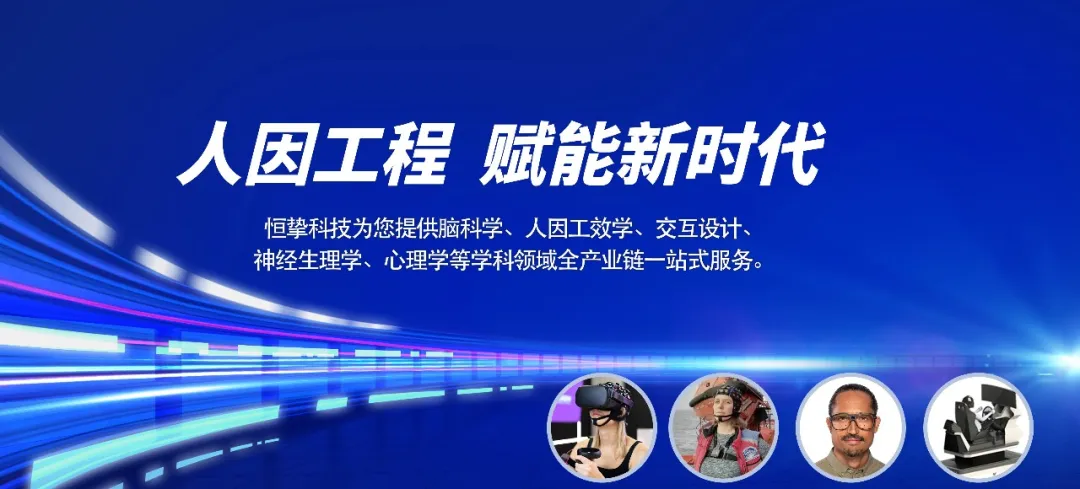


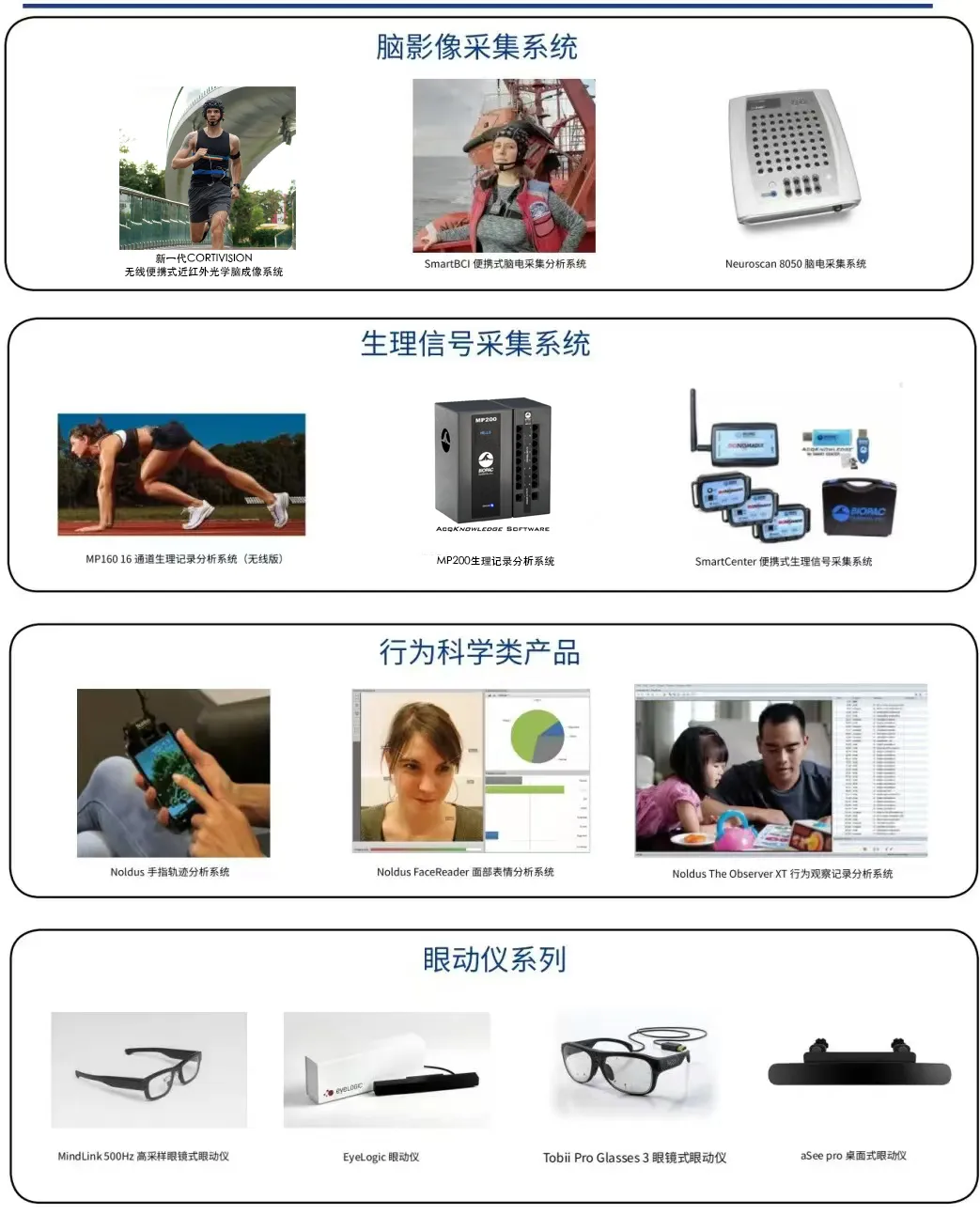




往期推荐197
往期推荐 · 目录
上一篇恒挚协办 | 第九届神经管理学与神经经济学国际会议(ICNN 2024)成功举办!





